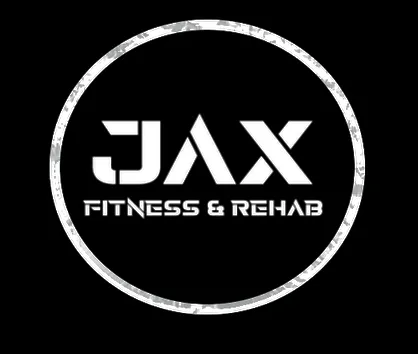
JAX Fitness & Rehab
KNOWLEDGE
Knowledge Is Power
Check Out Our Monthly Blog & Instagram Posts!
We frequently update our instagram with GUIDES and publish our blog post to keep you updated with the latest health and fitness tips!
Follow us on Instagram, Facebook, and SUBSCRIBE to our EMAIL & PHONE campaigns to remind you with your health & fitness goals!
LET'S STAY CONNECTED.

How to Reduce Your Cholesterol: A Comprehensive Guide
High cholesterol is a common health concern that can lead to serious conditions like heart disease and stroke. Fortunately, managing cholesterol levels is within your control through diet, lifestyle changes, and sometimes medication. This guide provides you with practical steps to reduce your cholesterol and improve your overall health.
Understanding Cholesterol
Cholesterol is a fatty substance found in your blood. Your body needs cholesterol to build healthy cells, but too much cholesterol can increase your risk of heart disease. Cholesterol is carried through your bloodstream by lipoproteins. Low-density lipoprotein (LDL), often referred to as "bad" cholesterol, can lead to the buildup of fatty deposits in your arteries. High-density lipoprotein (HDL), known as "good" cholesterol, helps remove LDL cholesterol from your bloodstream.
Steps to Reduce Cholesterol
1. Eat a Heart-Healthy Diet

A heart-healthy diet is a cornerstone in managing cholesterol levels. Choosing healthy fats is essential. Avoid trans fats found in many fried and commercially baked products, and limit saturated fats present in red meat and full-fat dairy products. Instead, opt for healthier fats like those in olive oil, avocados, and nuts.
Increasing your intake of soluble fiber can also significantly impact your cholesterol levels. Foods rich in soluble fiber include oats, barley, beans, lentils, fruits, and vegetables. Soluble fiber helps reduce the absorption of cholesterol into your bloodstream.
Adding omega-3 fatty acids to your diet is another beneficial strategy. Fatty fish like salmon, mackerel, and tuna are excellent sources of omega-3s, as are flaxseeds and walnuts. Omega-3s can help lower triglycerides and raise HDL cholesterol.
Finally, eating plenty of fruits and vegetables provides essential vitamins, minerals, and fiber, which collectively work to lower LDL cholesterol.
2. Exercise Regularly

Regular physical activity is crucial in maintaining healthy cholesterol levels. Moderate aerobic exercises such as brisk walking, swimming, or cycling for at least 30 minutes most days of the week can help raise HDL cholesterol and lower LDL cholesterol. Consistency is key, and incorporating exercise into your daily routine can lead to lasting benefits.
3. Maintain a Healthy Weight

Achieving and maintaining a healthy weight can significantly impact your cholesterol levels. Excess weight contributes to higher LDL cholesterol levels. Focusing on sustainable weight loss through a balanced diet and regular exercise can help you achieve your health goals. Even a modest weight loss can lead to substantial improvements in your cholesterol levels.
4. Quit Smoking

Quitting smoking is one of the most beneficial actions you can take for your overall health and cholesterol levels. Stopping smoking can improve your HDL cholesterol level and have immediate and long-term cardiovascular benefits.
5. Limit Alcohol Consumption

While moderate alcohol consumption can have some health benefits, excessive drinking can lead to high blood pressure, heart failure, and strokes. It is recommended to limit alcohol intake to no more than one drink a day for women and two for men.
Medications and Supplements

If lifestyle changes alone are insufficient, your doctor may recommend medications like statins to help reduce LDL cholesterol. Supplements such as plant sterols and stanols and soluble fiber supplements may also be beneficial in managing cholesterol levels.
Monitoring Your Cholesterol

Regular check-ups with your healthcare provider are essential to monitor your cholesterol levels and adjust your treatment plan as necessary. A simple blood test, known as a lipid panel, can measure your cholesterol levels.
Conclusion

Reducing your cholesterol is a crucial step towards better heart health. By making informed dietary choices, incorporating regular physical activity, maintaining a healthy weight, and following your doctor's recommendations, you can effectively manage your cholesterol levels. Remember, small changes can lead to significant health benefits over time. Taking charge of your cholesterol today can lead to a healthier, longer life. Start making these changes now and enjoy the benefits of a heart-healthy lifestyle.--
Post Address and Mail
Email:
info@jaxfitnessrehab.com
Address
FAIRVIEW:
1416 W 8th Ave #201, Vancouver, BC V6H 4A6
DOWNTOWN:
1160 Burrard St #508, Vancouver, BC V6Z 2E8
Get In Touch
Assistance Hours
Monday:
8 a.m.–9 p.m
Tuesday:
8 a.m.–9 p.m.
Wednesday:
6 a.m.–9 p.m.
Thursday:
8 a.m.–9 p.m.
Friday:
6 a.m.–8 p.m.
Saturday:
8 a.m. - 4 p.m.
Sunday:
11 am - 3 PM.
Phone Number:
(778) 771-0223
Studio:
1416 W 8th Ave #201, Vancouver, BC V6H 4A6
&
1160 Burrard St #508, Vancouver, BC V6Z 2E8
Call
(778) 771-3970
Email:
info@jaxfitnessrehab.com
Site: www.jaxfitnessrehab.com


